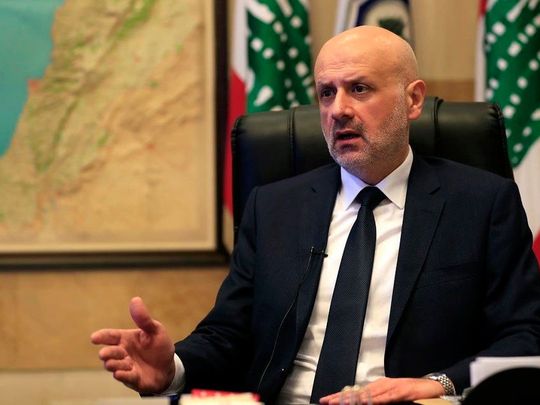
Beirut: Lebanon’s interior minister on Wednesday ordered the deportation of members of Bahrain’s outlawed opposition party after they criticised from Beirut their country’s human rights record.
Bahrain in 2016 suspended Al Wefaq, the island nation’s largest opposition political party. Al Wefaq was later dissolved over allegations including “harbouring terrorism”. Al Wefaq has close links with Lebanese militant movement Hezbollah.
The party, many of its members now living in exile, last week held a press conference in Beirut to launch its annual human rights report.
In response, Bahrain’s government denounced “the promotion of malicious allegations and causing harm to the Kingdom of Bahrain”, Lebanon’s National News Agency (NNA) said.
Interior Minister Bassam Mawlawi on Wednesday directed security officials “to take the measures necessary to expel from Lebanon the non-Lebanese members” of Al Wefaq, it added.
During a call with his Bahraini counterpart, Mawlawi said that Lebanon would not be used “as a platform to spread hate... towards Arab countries,” the NNA reported.
It wasn’t immediately clear how many Al Wefaq members will be impacted by the decision. According to a statement published on Lebanon’s state-run news agency, Mawlawi on Wednesday spoke over the phone with his Bahraini counterpart, Rashid bin Abdullah Al Khalifa. The call was followed by his decision asking Lebanese General Security to deport non-Lebanese members of Al Wefaq.
Bahrain said it “strongly protests’’ what it described as Lebanon hosting “hostile members who have been designated as supporters of terrorism’’ to spread false information that defames the Gulf Arab nation. It called on Lebanon to bar such events, saying they “are not harmonious with brotherly relations.’’
The deportation order is likely another attempt to ease an unprecedented diplomatic rift between Lebanon and several Gulf Arab nations, including Bahrain. Earlier this month, Lebanon’s information minister, who is at the heart of the weekslong crisis, resigned in a bid to ease the rift.
The diplomatic row between Lebanon and Saudi Arabia and other Gulf Arab countries broke out in late October when remarks by Minister George Kordahi were aired, critical of the Saudi-led war in Yemen.
Saudi Arabia, followed by the United Arab Emirates, Kuwait and Bahrain, withdrew their ambassadors and asked the Lebanese envoys to leave their capitals.
After weeks of resisting, Kordahi resigned but the crisis has persisted. Bahrain accuses Iran of backing Al Wefaq, which is also seen as an ally of Hezbollah.












